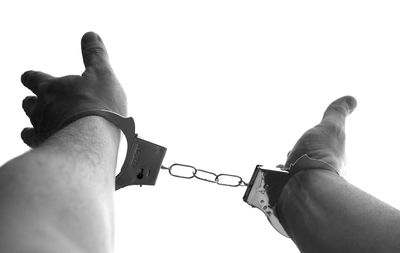

On December 17, a man in his 70s tragically lost his life after being struck by a stone thrown by an 8-year-old child at an apartment complex in Wolgye-Dong, Nowon-Gu. The deceased man, a resident of one of the apartments, was taking a walk with his disabled wife when the incident occurred. Despite the attendance of paramedics, the man succumbed to his injuries. During the ensuing police investigation, the child explained that he had thrown the stone as a joke, with no malicious intent. According to the current laws of the Republic of Korea, the child, being only 8 years old, cannot be held criminally responsible and is exempt from other protective measures as a result of these rights under the Juvenile Act. In a media interview, the victim's son said, "I don't know who to blame. Should I blame the child's parents? Should I blame the child? Should I blame the world?" On the child's legal protection, he remarked, "It's so unfair and absurd."
The Juvenile Act - Background
Recently, there have been several controversies involving juvenile offenders and their protection under the Juvenile Act. On October 3, a 15-year-old student kidnapped a woman in her 40s, raped her, and extorted money. On October 21, at a construction site in Cheonan, about 20 elementary and middle school students collectively assaulted two children, aged 12 and 14. Many juvenile offenders commit crimes either in defiance of the Juvenile Act or with the knowledge that they have rights under it, thereby avoiding serious punishment.
With the recent surge in high-profile cases of juvenile criminality, a sense of skepticism about the Juvenile Act is emerging, with many wondering whether it offers too much protection to offenders and not enough to the public.
The Juvenile Act first came into law in 1958. After the Korean War, as the country worked towards economic revival, alienated youths were drawn to crime, often as a result of hunger or low levels of education. In light of this, the government adopted a 'paternalistic patriotism' ideology based on the idea that the nation's role is to be like a parent. The Juvenile Act was an aspect of this approach and was aimed to rehabilitate rather than punish juvenile offenders. The law was enacted based on an understanding of the disadvantaged conditions and vulnerability of the country's juvenile offenders. The paternalistic approach also extends to adult offenders to some extent, with the Republic of Korea choosing a correctional approach rather than the harsher punishment regimes adopted by many other developed countries.
Is the Juvenile Act Effective?
According to data provided by the Korean courts, the number of juvenile crime cases filed in 2020 was 38,590, a decrease compared to 46,497 cases in 2011. The overall picture shows a downward trend. According to crime analysis data from the Supreme Prosecutors' Office, the incidence rate calculated as a proportion of the overall juvenile population is also in decline, with a decrease of 32.2% in the last 10 years. This suggests that, despite public perception, the Juvenile Act is somewhat effective. Daegeun Kim, who heads the Korean Institute of Criminology and Justice, asserted that the reason for the negative public perception is that certain types of crime, especially those involving children and teenagers, have always been highly sensitive, but such incidents are now reported simultaneously across social and online media, resulting in much more exposure than ever before.
While it may be true that the media can increase sensitivity to juvenile crime, heightened civic awareness compared to the past could be another contributing factor. As times change, universal ethics also mature. Although the purpose of the Juvenile Act is reasonable, if the results do not fit the era and create negative public sentiment, it may be necessary to revise the law in response to more up-to-date research on juvenile offending.
Reporter,
Dongwoo Kim rlaehddn4012@seoultech.ac.kr


 Comment 0
Comment 0 Posts containing profanity or personal attacks will be deleted
Posts containing profanity or personal attacks will be deleted